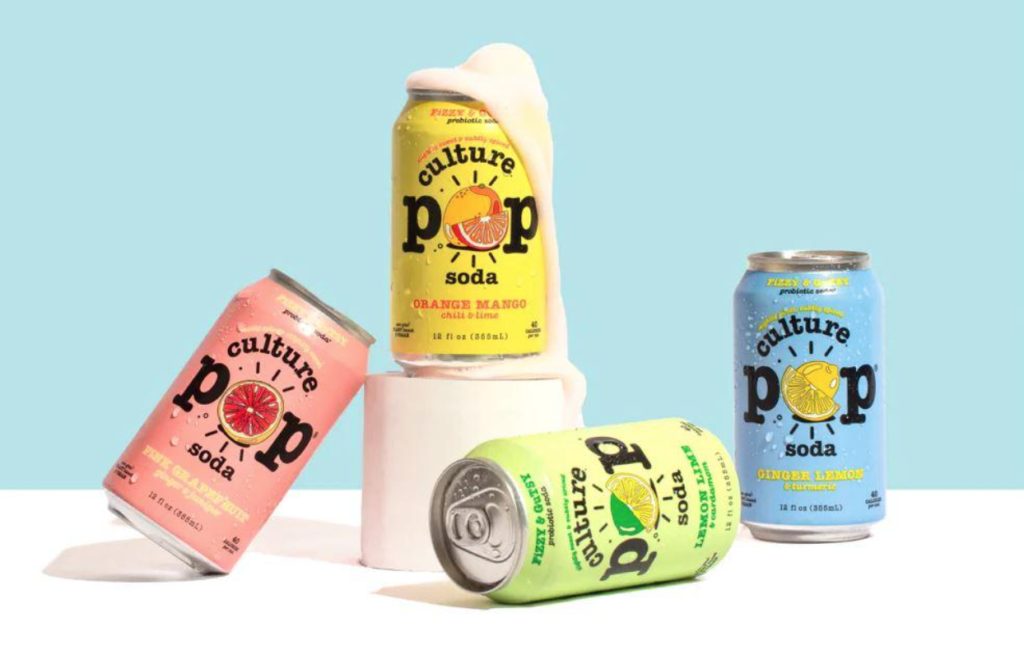The probiotic beverage space has come a long way since kombucha. Now, more and more probiotic soda brands are popping up, each claiming to support gut health and digestion. Thanks to the growing interest in healthier beverage options, the rise of functional beverages has been astronomical. But are probiotic sodas actually healthy?
What are Probiotic Sodas?
Simply put, probiotic sodas are carbonated drinks that contain one or more probiotic ingredient(s). But what are probiotics? According to the National Center for Complementary and Integrative Health (NCCIH), probiotics are “live microorganisms that are intended to have health benefits when consumed or applied to the body.”
Some research shows that, when consumed, probiotics can help maintain a balanced gut microbiome, which supports gastrointestinal health and function. They can also help your body maintain a healthy community of microorganisms, produce substances that have desirable effects and influence your body’s immune response.
Related: Rowdy Mermaid Introduces Mushroom-Based Sparkling Beverage
Probiotics may contain a variety of microorganisms, with the most common being bacteria that belong to the Lactobacillus and Bifidobacterium genera. But different types of probiotics may have different effects. For example, if a specific kind of Lactobacillus helps prevent an illness, that doesn’t necessarily mean that another kind of Lactobacillus would do the same thing.
While probiotics can be found in fermented foods, dietary supplements and beauty products, sodas containing probiotics are increasing in popularity. In terms of their nutritional value, probiotic sodas are a healthier alternative to traditional sodas since they may aid in better health. For instance, some probiotic sodas contain apple cider vinegar, which may help lower blood sugar.
Companies in the Probiotic Soda Space
Where drinks like kombucha involve fermentation, sometimes probiotic soda makers just add probiotic strains to their beverages for consumers to reap the benefits. One such company is Culture Pop, which features fruity flavors like strawberry & rhubarb, lemon lime & cardamom and ginger lemon & turmeric, all packed with live probiotics. Its sodas also contain organic fruit juice, real herbs and spices and no stevia.
Live is another brand in the space that offers sparkling kombucha in classic soda flavors like cream soda, spicy cherry berry and cherry cola. All of its probiotic sodas are organic, non-GMO, vegan, gluten-free and are lower in sugar than other kombuchas. In addition to sodas, Live also makes probiotic tea shots in a variety of flavors.
Like Culture Pop and Live, Loop is a probiotic soda maker, but unlike other brands, it uses produce that would otherwise be discarded and gives it a second life in its sodas and other products. The Canadian company is tackling food waste by creating a market for surplus produce, while also packing its sodas full of kefir culture and vegan probiotics.
Not to be confused with probiotic sodas, there are also a number of prebiotic sodas on the market. While probiotics are the actual living microorganisms found within fermented foods, prebiotics are typically high fiber foods that feed the good bacteria in your gut. Some prebiotic soda brands include Health-Ade Pop, Olipop and Poppi.
Currently, the global probiotic soda market is valued at $210.4 million and is projected to reach $443.8 million by 2032, growing at a compound annual growth rate (CAGR) of 7.7 percent.












Join or login to leave a comment
JOIN LOGIN